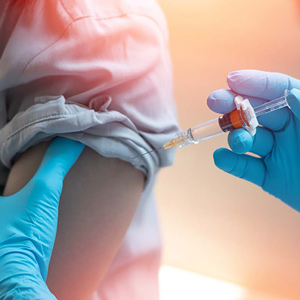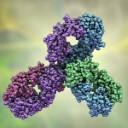-
Forward Look
First CAR-T Cell Therapy Approved for Multiple MyelomaCellular immunotherapies can offer periods when people do not require treatment.
by Christina Bennett
-
Forward Look
Going FlatMost people who opt out of breast reconstruction are satisfied with their decision but are not always supported by their surgeons.
by Kris Conner
-
Forward Look
The Impact of HPV VaccinationOver a decade after human papillomavirus vaccines first became available in the U.S., their effect on cervical cancer incidence is becoming apparent.
by Carisa D. Brewster
-
June 18: The Week in Cancer News
A study compares the benefits of fixed doses of immunotherapy compared to weight-based doses, and the Food and Drug Administration approves a targeted therapy for a rare disorder called systemic mastocytosis.
by Bradley Jones
-
A Treatment That Came Just in Time
Cancer survivor Laurie Adami reflects on her experience participating in a clinical trial that ultimately contributed to the March 2021 approval of a CAR-T cell therapy for follicular lymphoma.
by Laurie Adami
-
Genetic Testing Gaps
Testing for hereditary mutations is increasingly recommended for people with cancer, but recommendations do not always translate into access to testing and appropriate counseling.
by Kate Yandell
-
Expanding Immunotherapy
At a patient advocate event, researchers discussed how to extend the benefits of immunotherapy to more people.
by Kevin McLaughlin
-
Should All Kids With Cancer Get Genetic Testing?
Testing children with cancer for hereditary mutations could impact their treatment and provide information relevant to other family members.
by Marcus A. Banks
-
Understanding How Radiation Causes Cancer
Researchers are investigating who is at greatest risk for radiation-induced cancers.
by Kate Yandell
-
April 23: The Week in Cancer News
Anti-racism activist and historian Ibram X. Kendi opens up about his stage IV colon cancer treatment, and the FDA approves an immunotherapy drug for endometrial cancer
by Marci A. Landsmann
Cancer Talk
The Power of Comedy
In a new play, the pain of cancer can be a chance to laugh.
by Ashley P. Taylor
Melanoma Risk in Childhood Cancer SurvivorsPeople treated for childhood cancer found to have twice the risk of developing melanoma as an adult.
by Cameron Walker
Online Second OpinionsMore than half of patients who participated in a program offering online second opinions were recommended a change to their treatment plan.
by Eric Fitzsimmons
Musical Toxicity an Effect of Cancer TreatmentStudy finding cancer treatment affects ability to play or sing music highlights need for physical therapy, experts say.
by Kyle Bagenstose















